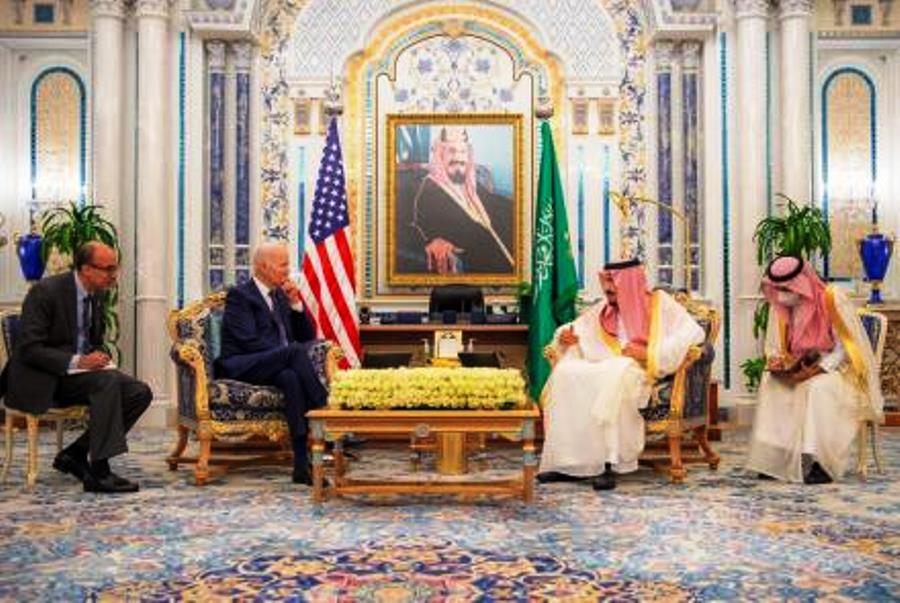(Reuters) – U.S. President Joe Biden will discuss regional missile and defence capabilities on Saturday when he meets Arab leaders in Saudi Arabia, where he will be seeking to integrate Israel as part of a new axis largely driven by shared concerns over Iran, said a senior administration official.
“We believe there’s great value in including as many of the capabilities in this region as possible and certainly Israel has significant air and missile defence capabilities, as they need to. But we’re having these discussion bilaterally with these nations,” the administration official told reporters.
Biden, on his first Middle East trip as president, has focused on the planned summit with six Gulf states and Egypt, Jordan and Iraq while downplaying meeting with Saudi Crown Prince Mohammed bin Salman. That encounter has drawn criticism in the United States over human rights abuses.
Biden had promised to make Saudi Arabia a “pariah” on the global stage over the 2018 murder of journalist Jamal Khashoggi by Saudi agents, but ultimately decided U.S. interests dictated a recalibration, not a rupture, in relations with the world’s top oil exporter and Arab powerhouse. read more
Biden needs the help of OPEC giant Saudi Arabia at a time of high crude prices and other problems related to the Russia-Ukraine conflict and as he encourages efforts to end the Yemen war, where a temporary truce is in place. Washington also wants to curb Iran’s sway in the region and China’s global influence.
The administration official said the United States is hopeful it will see an OPEC production boost in the coming weeks. Biden is expected to press other Gulf producers to pump more oil. The OPEC+ alliance, which includes Russia, meets next on Aug. 3.
The U.S. president, who started his trip to the region with a visit to Israel, will hold bilateral talks with leaders of Egypt, the United Arab Emirates and Iraq before taking part in the wider summit where he will “lay out clearly” his vision and strategy for America’s engagement in the Middle East, U.S. national security adviser Jake Sullivan said on Friday.
“He’s intent on ensuring that there is not a vacuum in the Middle East for China and Russia to fill,” Sullivan said.
Another senior administration official said Biden would announce that the United States has committed $1 billion in new near and long term food security assistance for the Middle East and North Africa, and that Gulf states would commit $3 billion over the next two years in projects that align with U.S. partnerships in global infrastructure and investment.
Gulf states, which have refused to side with the West against Russia in the Ukraine conflict, are in turn seeking a concrete commitment from the United States to strategic ties that have been strained over perceived U.S. disengagement from the region.













